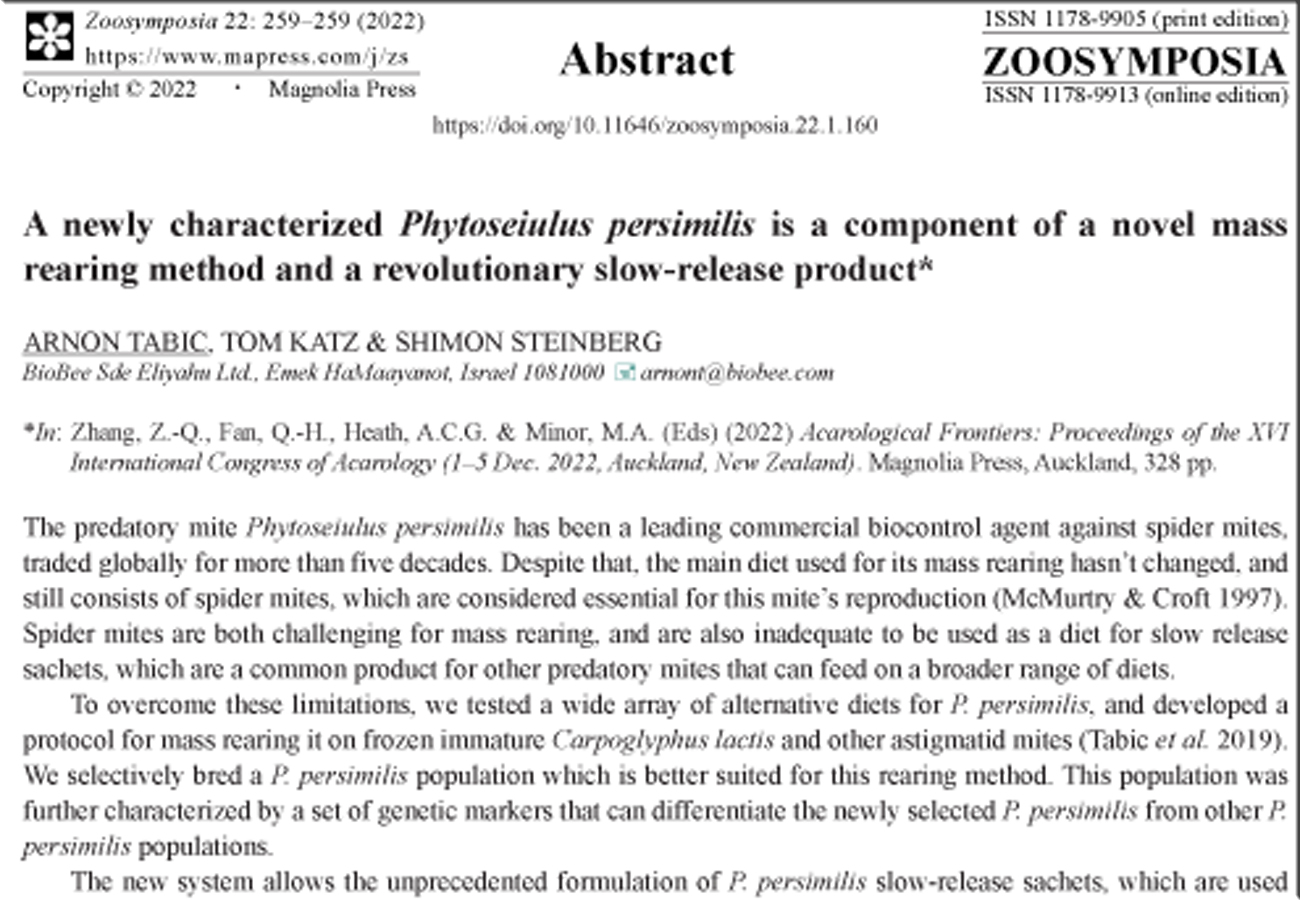Abstract
The predatory mite Phytoseiulus persimilis has been a leading commercial biocontrol agent against spider mites, traded globally for more than five decades. Despite that, the main diet used for its mass rearing hasn’t changed, and still consists of spider mites, which are considered essential for this mite’s reproduction (McMurtry & Croft 1997). Spider mites are both challenging for mass rearing, and are also inadequate to be used as a diet for slow release sachets, which are a common product for other predatory mites that can feed on a broader range of diets.
References
McMurtry, J.A. &Croft, B.A. (1997) Life-styles of phytoseiid mites and their roles in biological control. Annual Review of Entomology, 42, 291–321.
Tabic, A., Katz, T., Grosman, A. & Steinberg, S. (2019) Novel methods for rearing and controlled release of biological control agents. WO2019171374, publication date September 12, 2019. Available from: https://patentscope.wipo.int/search/en/detail.jsf?docId=WO2019171374 (accessed October 11th 2022)

